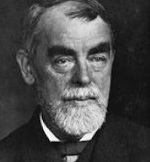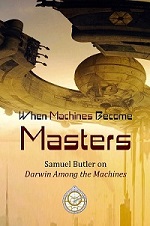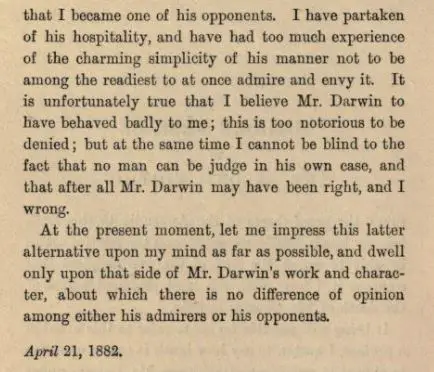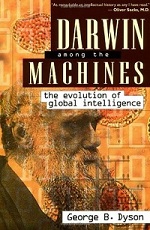|
TRANSLATE THIS ARTICLE
Integral World: Exploring Theories of Everything
An independent forum for a critical discussion of the integral philosophy of Ken Wilber
 David Christopher Lane, Ph.D.
Professor of Philosophy, Mt. San Antonio College Lecturer in Religious Studies, California State University, Long Beach Author of Exposing Cults: When the Skeptical Mind Confronts the Mystical (New York and London: Garland Publishers, 1994) and The Radhasoami Tradition: A Critical History of Guru Succession (New York and London: Garland Publishers, 1992). David Christopher Lane, Ph.D.
Professor of Philosophy, Mt. San Antonio College Lecturer in Religious Studies, California State University, Long Beach Author of Exposing Cults: When the Skeptical Mind Confronts the Mystical (New York and London: Garland Publishers, 1994) and The Radhasoami Tradition: A Critical History of Guru Succession (New York and London: Garland Publishers, 1992).SEE MORE ESSAYS WRITTEN BY DAVID LANE When Machines Become MastersForewordDavid Christopher Lane Samuel Butler Intellectually speaking Samuel Butler (1835-1902) was quite an unusual thinker. Even though he accepted the theory of evolution and deeply admired Charles Darwin's work on the subject, he vehemently disagreed with him over his (and Wallace's) use of the term natural selection. Butler saw Darwin's usage as confused and muddled, since it implies “that the external conditions which cause a variation are to be distinguished from the conditions which accumulate and perfect such variation, that is to say, he implies a radical difference between the process of variation and the process of selection. This I have already said does not seem to me acceptable; the selection I conceive to be simply the variation which has survived." Alfred Russel Wallace also later felt that natural selection implied too much (as if nature was consciously picking and choosing which organism should live or die) when, in fact, there is no such teleology. Thus, Wallace wrote to Darwin in July of 1866 suggesting that he instead co-opt Herbert Spencer's pithy phrase, “survival of the fittest.” Darwin responded warmly to the idea and eventually used it in the 5th edition of Orign of Species. However, Butler was also not satisfied with this as well, since as he pointed out, 
“Why is 'the survival of the fittest' more a means of modification than, we will say, the fact that animals live at all, or that they live in successive generations, being born, continuing their species, and dying, instead of living on for ever as one single animal in the common acceptation of the term; or than that they eat and drink? The heat whereby the water is heated, the water which is turned into steam, the piston on which the steam acts, the driving wheel, etc., etc, are all one as much as another a means whereby a train is made to go from one place to another; it is impossible to say that any one of them is the main means. So (mutatis mutandis) with modification. There is no reason therefore why 'the survival of the fittest' should claim to be an especial 'means of modification' rather than any other necessary adjunct of animal or vegetable life.” Butler is also upset with Darwin's dismissal of Jean-Baptiste Lamarck since he feels much of the Frenchman's theories dovetail almost precisely with Darwin's if a wider latitude is given to such specialized terms as circumstances. As Butler explains, “But the word 'circonstances', so frequently used by Lamarck for the conditions of an animal's existence, contains, by implication, the idea of animals which shall exist or not according as they fulfil those conditions or fail to fulfil them. Conditions of existence are conditions which something capable of existing must fulfil if it would exist at all, and nothing is a condition of an animal's existence which that animal need not comply with and may yet continue to exist. Again, the words 'animals' and 'plants' comprehend the ideas of 'fit,' 'fitter,' and 'fittest,' 'unfit,' 'unfitter,' and 'unfittest' for certain conditions, for we know of no animals or plants in which we do not observe degrees of fitness or unfitness for their 'circonstances' or environment, or conditions of existence.” Nevertheless, despite his deep disagreements with Darwin, Butler was a great admirer of the naturalist and in the preface to the second edition of his book, Evolution, Old & New, he praises his rival with the following, “I have always admitted myself to be under the deepest obligations to Mr. Darwin's works; and it was with the greatest reluctance, not to say repugnance, that I became one of his opponents. I have partaken of his hospitality, and have had too much experience of the charming simplicity of his manner not to be among the readiest to at once admire and envy it. It is unfortunately true that I believe Mr. Darwin to have behaved badly to me; this is too notorious to be denied; but at the same time I cannot be blind to the fact that no man can be judge in his own case, and that after all Mr. Darwin may have been right, and I wrong.”  Yet, what apparently changed Butler from a sympathizer of all things Darwinian to a harsh critic had much to do with the absence of teleogical drives. As Doug Hill illuminates, “Butler repeatedly argued that Darwinism explained the mechanics of evolution but overlooked its impetus. . . . Butler believed purposefulness imbues all of creation.”[1] It is therefore not surprising to learn that Butler himself wrote several books on evolution which still have merit, particularly for those philosophers (like Thomas Nagel) and thinkers who believe that there is still something missing in the Darwinian paradigm for life and its emergence.[2] One of the most provactive essays Butler wrote came under his pen name Cellarius. It carried the provactive title “Darwin Among the Machines” and was first published in New Zealand on June 13, 1863, in The Press. Here Butler, perhaps with a slight tongue in his cheek and with some irony, theorizes that machines will one day supplant humankind making us their servants. To avoid this horrible fate, Butler enjoins his readers that we should get ride of such machinery before it becomes our Lord and Master. As Butler exclaims, “War to the death should be instantly proclaimed against them. Every machine of every sort should be destroyed by the well-wisher of his species. Let there be no exceptions made, no quarter shown; let us at once go back to the primeval condition of the race." 
Writing more than a century later, George Dyson (son of the famous, Freeman Dyson), cribbing the title of his book from Butler's original essay on the subject, argued that in the future machines would one day become supremely intelligent, transcending human cognition. Today, the dangers of artificial intelligence evolving beyond human control have become a serious concern among scientists, technologists, and politicians. Because of Butler's doomsday prophecies concerning machines, he may be rightly regarded as one of the earliest thinkers to postulate a technological singularity. Unlike Ray Kurzweil, who sees such an event as mostly positive, Butler's position is Luddite to the extreme. As the Singularity Symposium website suggests, “Samuel Butler was probably the first Luddite technophobe who wrote a philosophical argument defending the complete annihilation of the machines and the return to traditional medievalism.” One suspects that Samuel Butler didn't really accept his own prognostications, given that he didn't resist having his books published on sophisticated printing presses nor did he eschew all the creature comforts of the late 19th century. Even though we may disagree with many of Samuel Butler's lamentations, I believe he is an important voice especially since we are now living at a time where his prophecies may indeed come true. NOTES[1] Doug Hill, "Thomas Nagel, Samuel Butler, and the Question of Consciousness", 2013. First published as: Doug Hill, "Erewhon: The 1872 Fantasy Novel That Anticipated Thomas Nagel's Problems With Darwinism Today", The Atlantic, February 15, 2013. [2] Frank Visser, "Biased Toward the Marvelous? Integral Reflections on Thomas Nagel's Mind and Cosmos", www.integralworld.net
“The proper inference is that there is a low livingness in every atom of matter...It should not be doubted that wherever there is vibration and motion there is life and memory, and that there is vibration and motion at all times in all things.” (Samuel Butler)
|